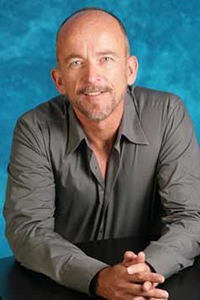Poet/Memoirist, Novelist/Screenwriter to Lead Writing Workshops for Students
For young writers, the prospect of getting their work in front of a master (whether a Pulitzer Prize-winning author, a prominent poet or a famous byline) can be both exciting and terrifying.
Student scribes at Wesleyan will have that opportunity this academic year as two masters of the craft come to campus to conduct a series of noncredit workshops at the Shapiro Creative Writing Center. Poet and memoirist Mark Doty and novelist and screenwriter Michael Cunningham will each do a series of three, two-and-a-half-hour master classes for about a dozen students. Doty’s up first in the fall semester and Cunningham will be on campus in the spring.
“They’re both exceptional writers, and this is a great opportunity for students,” said Amy Bloom ’75, director of the Shapiro Writing Center. “Having your work read and getting that type of direction is absolutely critical (for those learning the craft).”

Bloom, a novelist and short story and children’s book author, said the classes, which will not be graded or offered for credit, will be capped at a dozen people; participants will be chosen by Bloom, Doty and Cunningham on the basis of submitted work.
“We’ll have some writing exercises, some homework, some dinner, some community and some support,” said Doty, a National Book Award winner. “We’ll talk about their poems, read some contemporary poems. But it won’t be all criticism of students’ work.”
The author of eight volumes of poetry and three memoirs, Doty, who is the only American winner of Britain’s T.S. Eliot Prize, said that for student poets, “it’s not all about polishing and honing. It’s a lot about looking for opportunities for the next poem.”
In the spring semester, Michael Cunningham, author of The Hours and A Home at the End of the World among other novels, as well as a number of screenplays, will offer similar support for fiction students.
“The question we’ll address is how can you, a young writer, take the voice you’re developing and push it and produce a story at least a little bit unlike anything you’ve ever read before?” Cunningham said. “I’m not here to reform the story, to domesticate it or talk to the writer about how I would have written the story. We’re performing a subtler and more difficult act of reading, trying to suss out what is strongest, and encouraging the writer to work with that.”

Cunningham, who won the Pulitzer Prize as well as the PEN/Faulkner Award, is a professor of creative writing at Yale University. He said the chief mistake among young writers is a tendency “to take long excursions into a character’s past.”
“Think how well you need to know somebody before you want to hear about their childhood,” he said. “It’s the same thing. I tell students that the present is alive in a way the past isn’t.”
Doty said trends in student writing tend to follow cultural fashions generally. In 1990s, “there was a strong emphasis on examining one’s own history,” he said… “As that decade wore on there was a weariness of self-examination. Then, an examination of language as a thing itself… I’m always bringing my students poems that are being written right now, so that they can be part of the conversation right now.”
Students interested in joining the master classes should email Amy Bloom as soon as possible and include samples of their work (“or however they wish to present themselves,” Bloom said). The fall semester classes will be from 6-8:30 p.m. on Sept. 26, Nov. 6 and Dec. 4.

